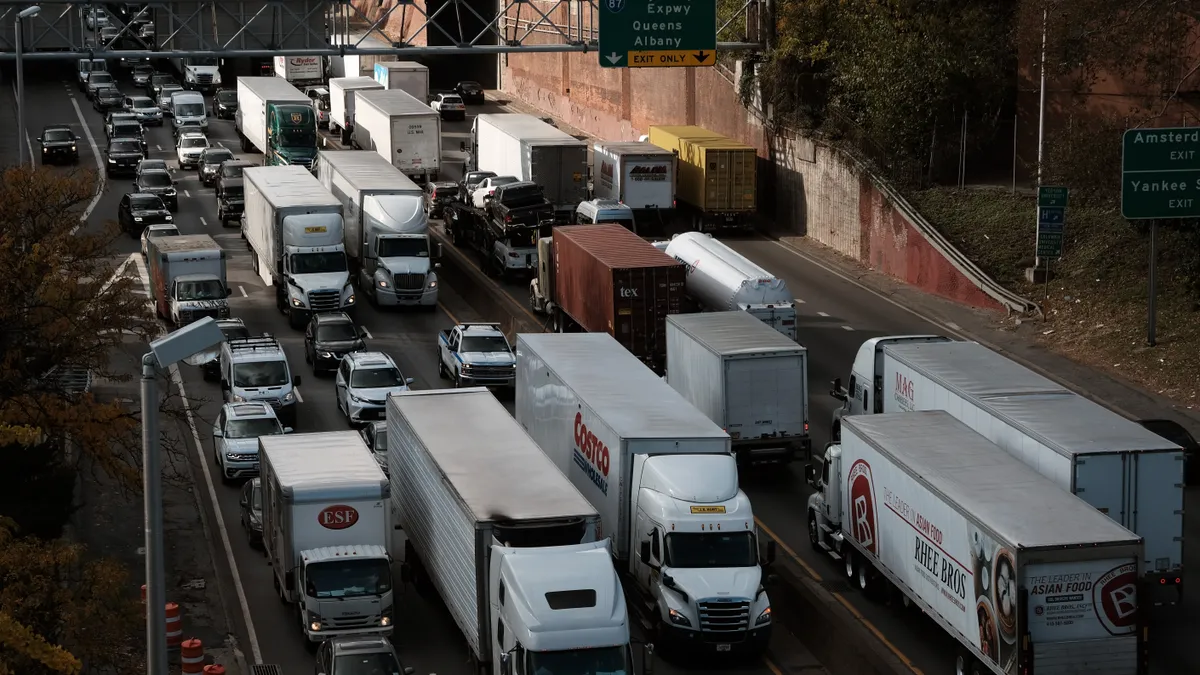Dive Brief:
- The Department of Transportation’s Reconnecting Communities Pilot Program lacks measurable objectives, methods to assess data and evaluate plans, and ways to share lessons learned to inform future decisions, the U.S. Government Accountability Office found in a May 24 report.
- A GAO team studied eight highway removal and capping projects in seven states that had previously received federal funding, interviewing city, state and transportation agency officials and community members. It identified five key considerations in effective planning and evaluated the new program against that benchmark.
- The agency wants to “see if there are recommendations we would make at the beginning” to improve the program as additional funding rounds take place, said Elizabeth Repko, report lead and GAO director of physical infrastructure; thus, it plans to follow up on the study’s three recommendations.
Dive Insight:
Many cities built highways in the 1950s and 1960s that divided communities, often those predominantly housing people of color. In the last decade, cities began efforts to reconnect these communities, undertaking at least 36 projects to remove or cap over some highways.
Examples of such projects include the removal of a six-lane highway in Rochester, New York, that was replaced with a street-level boulevard, new housing and pedestrian and bicycling infrastructure and the capping of a freeway in Dallas with a five-acre park. Recently-proposed projects include a Philadelphia plan to reconnect the Chinatown community severed in 1991 by the Vine Street Expressway; a proposal to build a deck plaza over Interstate 10 in downtown El Paso, Texas; and New York City studying ways to deck over parts of the Cross Bronx Expressway.
The 2021 bipartisan infrastructure law provides $1 billion over five years to advance such efforts in the Reconnecting Communities Pilot Program, with $185 million going to the first 45 projects. Additional federal funding sources for such projects include highway formula grant programs, discretionary grants and the Neighborhood Access and Equity Grant Program, a part of the 2022 Inflation Reduction Act.
The GAO report made three key recommendations for the Reconnecting Communities program to the Department of Transportation:
- Establish performance measures in line with the program’s objectives.
- Develop a plan to collect and analyze data from the program aimed at evaluating results.
- Find a way to share learnings from the program, such as whether the DOT is attracting enough high-quality projects and whether they can be completed in a reasonable timeframe.
Repko said the report is useful to the stakeholders of both current and proposed projects and could help the Transportation Department improve the federal assistance it provides under the Reconnecting Communities program.
In response to the GAO report, the DOT’s assistant secretary for administration, Philip McNamara, said in a letter that the department “concurs with GAO’s three recommendations” and will provide a detailed response within 180 days.












